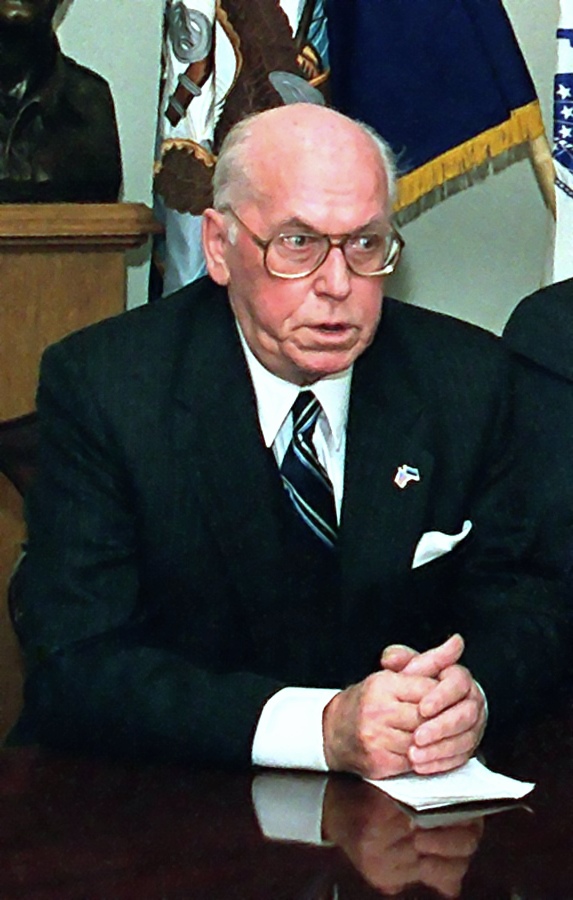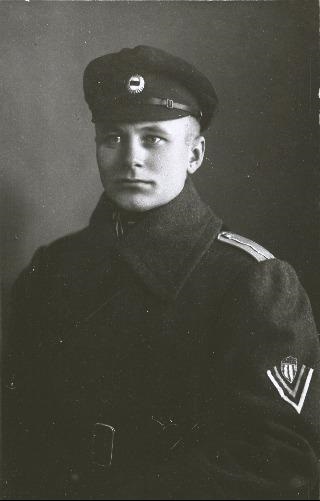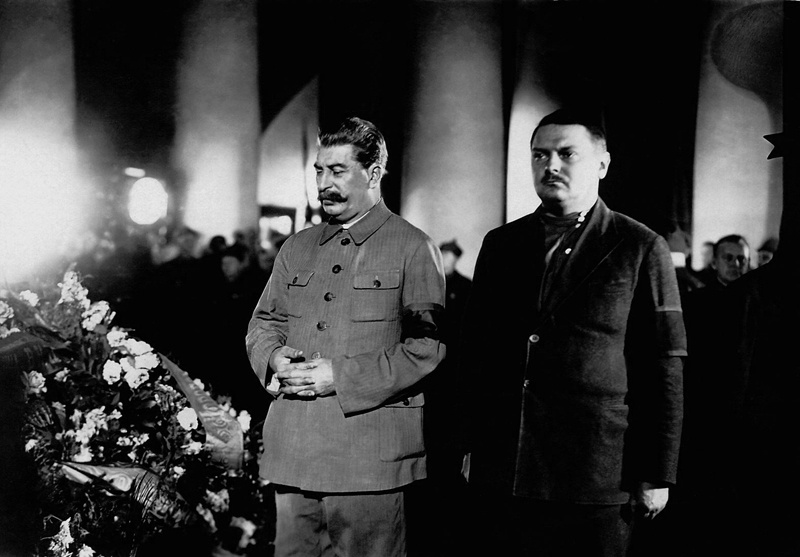|
President Of Estonia
The president of the Republic of Estonia () is the head of state of the Estonia, Republic of Estonia. The current president is Alar Karis, elected by Parliament on 31 August 2021, replacing Kersti Kaljulaid. Estonia is one of the few parliamentary republics in which the president is a ceremonial figurehead without even nominal executive powers. The president is obliged to suspend their membership in any political party for the term in office. Upon assuming office, the authority and duties of the president in all other elected or appointed offices terminate automatically. These measures should theoretically help the president to function in a more independent and impartial manner. The president holds office for five years. They may be elected any number of times, but not more than twice consecutively. In Estonia, the president is elected by the Riigikogu; [...More Info...] [...Related Items...] OR: [Wikipedia] [Google] [Baidu] |
Alar Karis
Alar Karis (; born 26 March 1958) is an Estonian molecular geneticist, developmental biologist, civil servant and politician who, since 11 October 2021, has served as the sixth president of Estonia. Prior to presidency Karis was born in Tartu on 26 March 1958. His father was the botanist Harry Karis (1930–2018) and his mother Virve Karis (1928–2020), an agriculture specialist in animal nutrition. He grew up with his mother and grandmother Vilhelmine after his parents divorced in 1960. He graduated from the Estonian Agricultural Academy in 1981. In 1999, he became a professor at the University of Tartu. Karis served as rector of the Estonian University of Life Sciences from 2003 to 2007, as rector of the University of Tartu from 2007 to 2012, as the Auditor General of Estonia from 2013 to 2018, and as director of the Estonian National Museum from 2018 to 2021. Presidency In August 2021, he was approached by the president of the Riigikogu Jüri Ratas with a prosp ... [...More Info...] [...Related Items...] OR: [Wikipedia] [Google] [Baidu] |
Conservative People's Party Of Estonia
The Conservative People's Party of Estonia (, EKRE) is a Estonian nationalism, nationalist and right-wing populist political party in Estonia led by Martin Helme. It was founded in March 2012 with the merger of People's Union of Estonia and Estonian Patriotic Movement while legally remaining the same entity as the People's Union of Estonia. Its first leader, Margo Miljand, served as the chairman until 2013 when he was succeeded by Mart Helme. Its popularity remained low until late 2014, when the party began to draw supporters from the right; in the 2015 Estonian parliamentary election, it passed the electoral threshold and won seats in parliament for the first time. Since then, its support has grown, turning it into one of the largest parties in Estonia. In the 2019 Estonian parliamentary election, EKRE placed third, winning 19 seats in total. Mart was succeeded as party chairman by his son, Martin Helme, in July 2020. Since its inception, EKRE has been described as a Radical ri ... [...More Info...] [...Related Items...] OR: [Wikipedia] [Google] [Baidu] |
Aleksander Warma
Aleksander Warma VR I/3 (also Varma; – 23 December 1970) was an Estonian navy officer, diplomat, and painter. Biography Aleksander Warma studied at marine schools in Käsmu and Narva, and he took a deep sea captain's exam in Riga. In 1920, he took the high school exams for the examination committee of the Tallinn Teachers' Training College. From 1920 to 1924, he studied at the Department of Law of Tartu University, graduating with a 1st-degree diploma. He received a master's degree in law in 1928. He was a member of the Estonian Students' Society. In World War I, he served in the Russian Baltic fleet. During the Estonian War of Independence, he served in the Estonian Navy, and he was chief of staff of the navy from 1919 to 1920. After the war, he commanded the navy ship . From 1924 to 1926, he was assistant to the jurisconsult of the Ministry of War. In 1926, Warma retired as a lieutenant commander. From 1926 to 1927, Warma was the director of the legal bureau of the Min ... [...More Info...] [...Related Items...] OR: [Wikipedia] [Google] [Baidu] |
August Rei
August Rei ( – 29 March 1963) was an Estonian politician. He served as State Elder of Estonia from 1928 to 1929, and as Prime Minister in duties of the President of the Estonian government-in-exile from 1945 to 1963. Early life and education August Rei was born in Kurla, Pilistvere parish, Kreis Fellin (now Türi Parish, Järva County). He began studying at Emperor Alexander High School in Tartu, but abandoned his studies there in December 1902, in order to forestall his expulsion after participating in Estonian nationalist circles. He continued his studies at Novgorod State High School, graduating in 1904. In 1904–1905 and 1907–1911, he studied law at Saint Petersburg State University. During this time, he also translated works by socialist theoreticians such as Ferdinand Lassalle, Karl Kautsky and August Bebel to Estonian. Beginnings of political influence Rei participated in the Russian Revolution of 1905, taking part in the organization of an uprising at th ... [...More Info...] [...Related Items...] OR: [Wikipedia] [Google] [Baidu] |
Estonian Government-in-exile
The Estonian government-in-exile was the formally declared governmental authority of the Republic of Estonia in exile, existing from 1944 until the reestablishment of Estonian sovereignty over Estonian territory in 1991. It traced its legitimacy through constitutional succession to the last Estonian government in power prior to the June 1940 Soviet invasion and occupation of the country. During its existence, it was the internationally recognized government of Estonia. Background The Soviet Armed Forces invaded and occupied Estonia on 16–17 June 1940. Soviet authorities arrested President Konstantin Päts and deported him to the USSR where he died in prison in 1956. Many members of the current and past governments were deported or executed, including eight former heads of state and 38 ministers. Those who survived went underground. Sham elections were held on 14–15 July 1940 for a "People's ''Riigikogu''," in which voters were presented with a single list dominated by ... [...More Info...] [...Related Items...] OR: [Wikipedia] [Google] [Baidu] |
Otto Tief
Otto Tief ( – 5 March 1976) was an Estonian politician, military commander, and a lawyer. Tief was the acting prime minister of the last government of EstoniaThe Otto Tief government and the fall of Tallinn 22 September 1944: From one occupation to another before Soviet troops occupied in the Second Wo ... [...More Info...] [...Related Items...] OR: [Wikipedia] [Google] [Baidu] |
Jüri Uluots
Jüri Uluots (13 January 1890 – 9 January 1945) was an Estonian prime minister, journalist, prominent attorney and distinguished Professor and Dean of the Faculty of Law at the University of Tartu. Early life Uluots was born in Kirbla Parish (now Lääneranna Parish), in the Wiek County of the Governorate of Estonia in 1890 and studied law at St. Petersburg University in 1910–1918. He subsequently taught Roman and Estonian law at the University of Tartu until 1944. Uluots was also an editor of the '' Kaja'' newspaper 1919–1920, and editor-in-chief of '' Postimees'' 1937–1938. Political career Uluots was elected to the Riigikogu, the Estonian parliament, for 1920–1926, and from 1929 through 1932. He was speaker of the Riigivolikogu ( lower chamber) from 4 April 1938 to 12 October 1939. Uluots then served as prime minister from 1939 until June 1940 when Soviet troops entered Estonia and installed a new Soviet puppet government led by Johannes Vares, whereas ... [...More Info...] [...Related Items...] OR: [Wikipedia] [Google] [Baidu] |
Andrei Zhdanov
Andrei Aleksandrovich Zhdanov ( rus, Андрей Александрович Жданов, p=ɐnˈdrʲej ɐlʲɪkˈsandrəvʲɪdʑ ˈʐdanəf, a=Ru-Андрей Жданов.ogg, links=yes; – 31 August 1948) was a Soviet politician. He was the Soviet Union's "propagandist-in-chief" after the Second World War,V. M. Zubok and Konstantin Pleshakov. Inside the Kremlin's Cold War: from Stalin to Khrushchev. Harvard: Harvard UP, 1996, p.119 and was responsible for developing the Soviet cultural policy, the Zhdanov Doctrine, which remained in effect until the death of Joseph Stalin. Zhdanov was considered Stalin's most likely successor but died before him. Zhdanov joined the Bolsheviks in 1915 and quickly rose through the party ranks. A close associate of Stalin, he became a secretary of the Central Committee of the Communist Party of the Soviet Union, Central Committee in 1934, and later that year he was promoted to Saint Petersburg, Leningrad party chief following the assassinati ... [...More Info...] [...Related Items...] OR: [Wikipedia] [Google] [Baidu] |
Red Army
The Workers' and Peasants' Red Army, often shortened to the Red Army, was the army and air force of the Russian Soviet Republic and, from 1922, the Soviet Union. The army was established in January 1918 by a decree of the Council of People's Commissars to oppose the military forces of the new nation's adversaries during the Russian Civil War, especially the various groups collectively known as the White Army. In February 1946, the Red Army (which embodied the main component of the Soviet Armed Forces alongside the Soviet Navy) was renamed the "Soviet Army". Following the dissolution of the Soviet Union it was split between the post-Soviet states, with its bulk becoming the Russian Ground Forces, commonly considered to be the successor of the Soviet Army. The Red Army provided the largest land warfare, ground force in the Allies of World War II, Allied victory in the European theatre of World War II, and its Soviet invasion of Manchuria, invasion of Manchuria assisted the un ... [...More Info...] [...Related Items...] OR: [Wikipedia] [Google] [Baidu] |
Johannes Vares
Johannes Vares (pen name Barbarus or Vares-Barbarus – 29 November 1946) was an Estonian poet, medical doctor, and politician. Early life and education Vares was born in a farmer family in the village of Kiisa, near Viljandi, Estonia. He received secondary education at Pärnu Gymnasium, and in 1910–1914 studied medicine at the University of Kyiv. Medical career Vares served as a military physician in World War I, and after that as a military physician for the Estonian Army during the Estonian War of Independence (1918–1920). He was awarded the Estonian Cross of Liberty for the participation. In the 1920s, Vares started working as a medical doctor in Pärnu. He subsequently became a well-known poet as well as a radical socialist, using the pen name Johannes Barbarus. Prime minister of Estonia During World War II, after the Stalinist Soviet Union invaded and occupied Estonia in June 1940, Andrei Zhdanov, leader of the Soviet aggression, forced the Estonian pre ... [...More Info...] [...Related Items...] OR: [Wikipedia] [Google] [Baidu] |
Soviet Occupation Of The Baltic States (1940)
The Soviet occupation of the Baltic states covers the period from the Soviet– Baltic mutual assistance pacts in 1939, to their invasion and annexation in 1940, to the mass deportations of 1941. In September and October 1939 the Soviet government compelled the much smaller Baltic states to conclude mutual assistance pacts which gave the Soviets the right to establish military bases there. Following invasion by the Red Army in the summer of 1940, Soviet authorities compelled the Baltic governments to resign. The presidents of Estonia and Latvia were imprisoned and later died in Siberia. Under Soviet supervision, new puppet communist governments and fellow travelers arranged rigged elections with falsified results. Shortly thereafter, the newly elected "people's assemblies" passed resolutions requesting admission into the Soviet Union. In June 1941 the new Soviet governments carried out mass deportations of "enemies of the people". Consequently, at first many Balts greeted the ... [...More Info...] [...Related Items...] OR: [Wikipedia] [Google] [Baidu] |
Palacio Presidencial Kadriorg, Tallinn, Estonia, 2012-08-12, DD 10
Palacio (''palace'') is a Spanish habitational name. It may have originated from many places in Spain, especially in Galicia and Asturias. Notable people with the surname include: *Agustina Palacio de Libarona (1825–1880), Argentine writer, storyteller, heroine *Alberto Palacio, engineer *Alfredo Palacio (1939–2025), Ecuadorian cardiologist and politician, president of Ecuador (2005–2007) *Andy Palacio, Belizean musician *Emilio Palacio, Ecuadorian journalist *Ernesto Palacio, opera singer *Héctor Palacio, Colombian road racing cyclist *Milt Palacio, basketball player * R. J. Palacio, American writer of the 2012 children's novel ''Wonder'' *Rodrigo Palacio Rodrigo Sebastián Palacio Alcalde (; born 5 February 1982) is an Argentine professional basketball player and former association football, footballer who played as a second striker. He is the son of José Ramón Palacio, a historic player of C ..., footballer See also * Palacios (other) References {{s ... [...More Info...] [...Related Items...] OR: [Wikipedia] [Google] [Baidu] |



